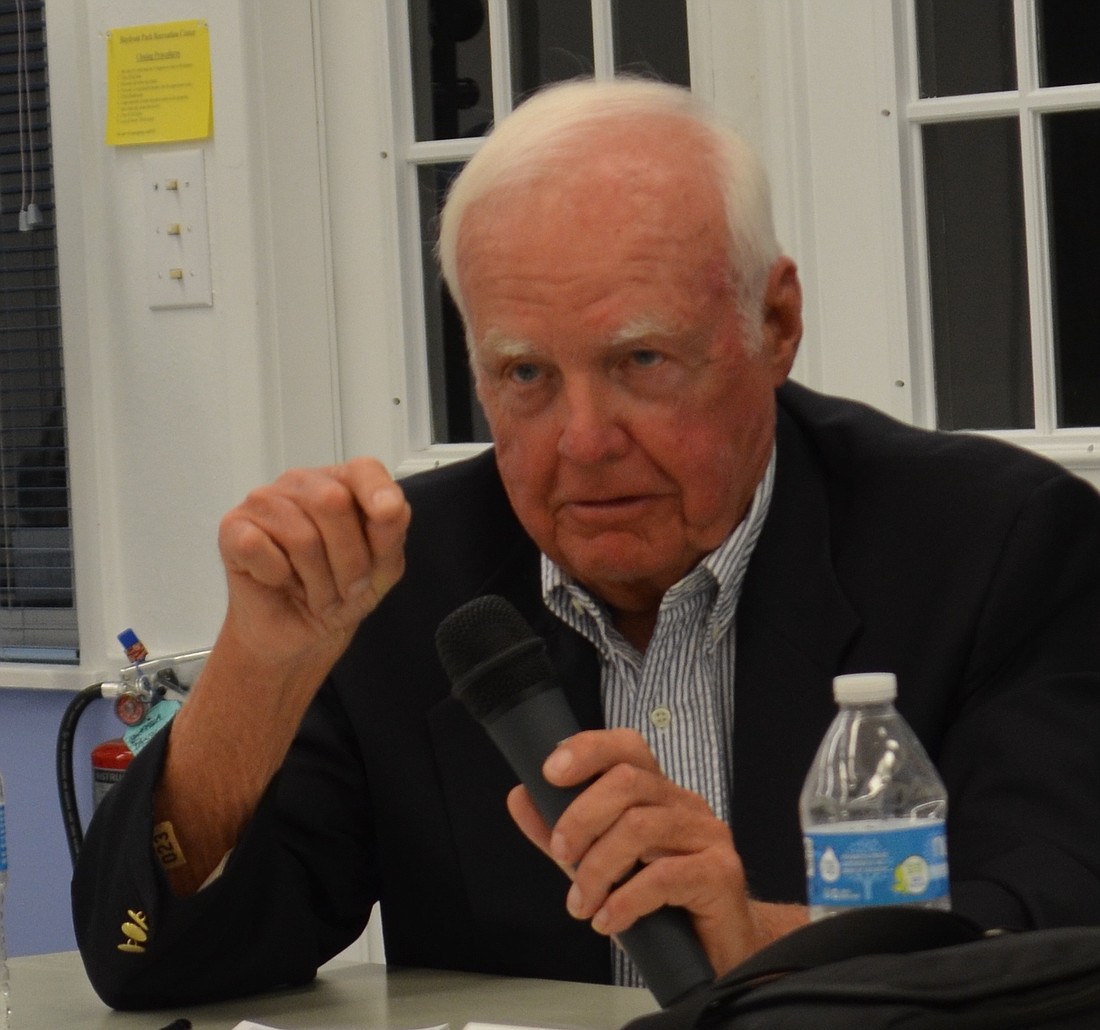- November 20, 2024
-
-
Loading

Loading

The town could end this fiscal year with the highest-ever fund balance -- almost $10.1 million, or enough to operate for about 7.5 months.
The 229-day reserve is estimated to sit at $10,092,793 on Sept. 30, considerably more than its 90-day minimum reserve policy. And that has town leaders comfortable in a year that has already taken several twists and turns.
“I do believe that 90-day target is low for a coastal barrier island in Florida with hurricane season and other potential impacts that can impact our revenues in various ways whether it’s weather-related or red tide or some other economic event,” Town Manager Tom Harmer said.
Commissioner Jack Daly agreed with Harmer, asking for him and his staff to consider increasing the 90-day minimum.
“We have been able to prudently budget and enhance our general fund very substantially, such that now we’re over double the 90-day target, which to me suggests that we should carefully consider a more reasonable, updated increased target here,” Daly said.
Commissioner George Spoll said he endorses Daly’s idea.
“Ninety days in today’s crazy climate [can] disappear very quickly,” Spoll said. “I think it would be prudent that we consider his idea of doubling our target.”
Regarding the town’s 90-day reserve, Spoll said he is most concerned about the potential effects a hurricane could have on the town and its ability to collect taxes.
“What concerns me is that as a barrier island, it isn’t a matter of whether or not if we had an unforeseen problem that we can raise taxes,” Spoll said. “The issue is that we may not be able to collect the taxes because property damage has been such that we are severely handicapped at a time when we need funds for reconstruction and emergency operations.”
However, town finance director Sue Smith cautioned the town went below its 90-day minimum during the Great Recession in 2007-2009.
“When we started to recover, that’s when we started building the fund balance back up again, so although 180 days does sound like a sound thing to do being a barrier island, there may be a debt another day where you’re going to want to go below that 180 days just so that you don't have to increase taxes or cut services.”
Harmer acknowledged that there are “pros and cons” depending on the town’s minimum. He mentioned if the town doesn’t meet the minimum that there could be credit issues in the future.
“This something we could bring back to you with kind of the pros and cons and different levels of where you could set it so you could have a little bit more detailed discussion on where you might want to end up on that,” Harmer said. “There is a downside to not meeting here.”
Vice Mayor Mike Haycock said he doesn’t think the town should change its current minimum policy.
“We know we want to be much higher than that, but to force us to a higher number and then when we dip into it, [it could] force us to make the decision to cut the budget or raise taxes, I don’t think is something we want to do,” Haycock said. “We’re in a great position. We may need it and if we need it, then let’s spend it, but to raise it just to feel better, I don’t think we should do.”
Commissioner Ed Zunz thinks the town should increase the minimum.
“I think it should be phased in terms of no less than 150 [days] or no less than 180 because I think whatever the number is, if we can be above it as we are now, we should continue to try to recede it, if possible,” Zunz said. “It is a target, but a target is something that you might occasionally miss, and if that happens, I think we have to deal with it, we need to consider what Sue [Smith] has said.”